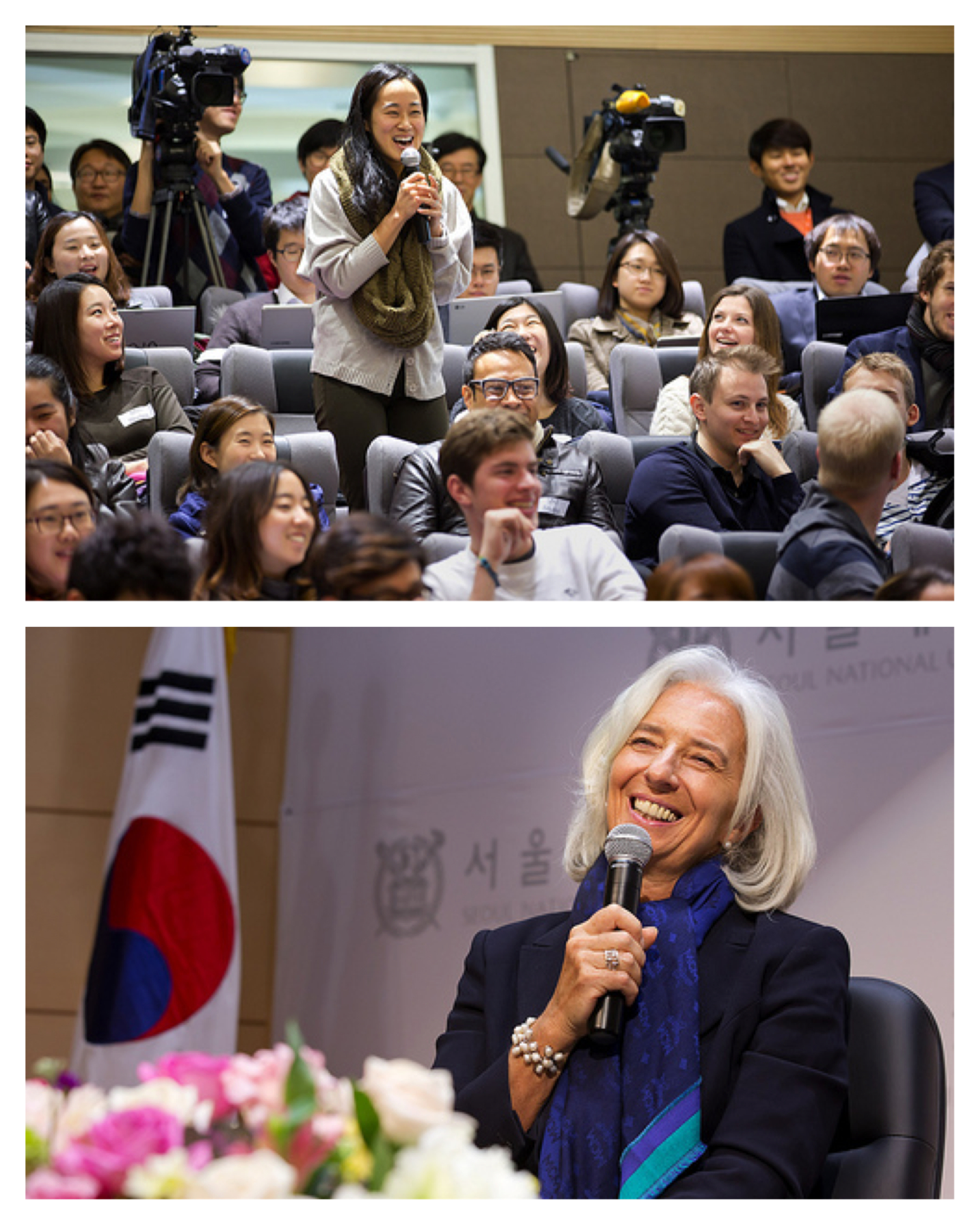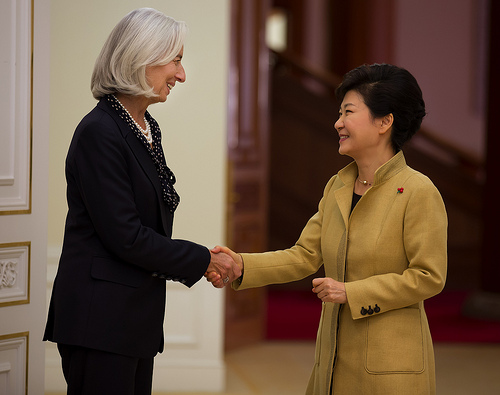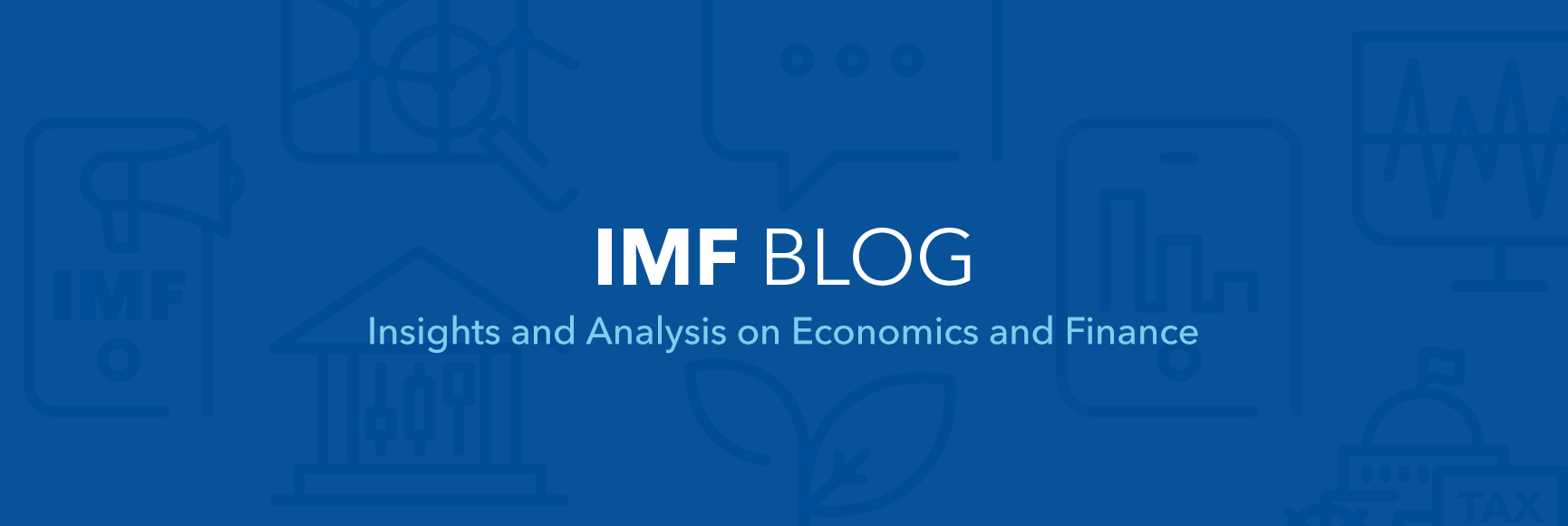My arrival in Seoul was somewhat delayed when dense fog caused my plane from Phnom Penh to be temporarily diverted from Seoul to Daegu. Still, better late than never! I was delighted to be back in Seoul, capital of one of the world’s most dynamic and innovative economies. Just remember: in a remarkably short period of time, Korea has risen from close to the bottom to close to the top—becoming the thirteenth most prosperous economy with an income per capita that is higher than the European Union average.
With such a track record, Korea plays an increasingly important role on the global stage. It held the annual presidency of the Group of Twenty advanced and emerging economies at the height of the global financial crisis in 2010. It is host to the Green Climate Fund, whose aim is to help developing countries respond to climate change—surely one of the greatest challenges of the 21st century. And it is playing ever increasing leadership roles in other international institutions, including the IMF.
Korea’s enhanced role in global affairs is paralleled by the reach of its “soft power”: the famous “hallyu” (Korean wave) has swept Asia and beyond with the melodies of its K-pop stars, its addictive Korean dramas and the technological wizardry of its products. And who has not danced—or at least tried to dance—to Psy’s insanely catchy viral hit?
[caption id="attachment_6693" align="alignright" width="240"] A student asks International Monetary Fund Managing Director Christine Lagarde a question after she spoke at the Student Town Hall at Seoul National University December 5, 2013 in Seoul, Korea Lagarde is on a three country visit to Asia. IMF Photograph/Stephen Jaffe[/caption]
A student asks International Monetary Fund Managing Director Christine Lagarde a question after she spoke at the Student Town Hall at Seoul National University December 5, 2013 in Seoul, Korea Lagarde is on a three country visit to Asia. IMF Photograph/Stephen Jaffe[/caption]
I was particularly interested in what the future might hold for the “miracle on the Han”. I learned a lot from my discussions—with the authorities, with women leaders, and with students at the extremely prestigious Seoul National University, where I had been invited for a lecture and dialogue with students.If I could distil the main takeaway from my interactions, it would be this: for Korea to stay at the cutting edge of the global economy, it needs to sustain the inclusive growth that has been the hallmark of its development, and give everybody the chance to develop their multiple talents and fulfill their rich potential.
In part, this means providing more opportunities for young people and women—who tend to be less included in the labor market than is the case in other Organization for Economic Cooperation and Development countries.
I was really struck by the worries of young people about growing inequality and discontent in society—especially related to their fears about finding meaningful work, job security, and a living wage in an ever more competitive world.
[caption id="attachment_6694" align="alignright" width="240"] International Monetary Fund Managing Director Christine Lagarde (L) meets with Korea's President Park Geun-hye (R) at the Blue House December 4, 2013 in Seoul, Korea Lagarde is on a three country visit to Asia. IMF Photograph/Stephen Jaffe[/caption]
International Monetary Fund Managing Director Christine Lagarde (L) meets with Korea's President Park Geun-hye (R) at the Blue House December 4, 2013 in Seoul, Korea Lagarde is on a three country visit to Asia. IMF Photograph/Stephen Jaffe[/caption]
I was also struck by the Korean women I met—some of the most talented, determined, and dedicated women anywhere in the world. First among these, of course, is President Park Geun-hye, the first woman elected to the highest office in Korea, whose life has been dedicated to the service of her country. With women of this caliber, it is hard not to be optimistic about Korea’s future—but they must all be given a chance to access and demonstrate their many talents.
Letting everybody contribute also means strengthening the social safety net, and Korea can afford it. And it means making the services sector embrace more fully the dynamism that is the true hallmark of Korea, including by tackling vested interests where needed.
I take great encouragement from the government’s commitment to push ahead in all of these areas.
For my part, I emphasized the importance of an enduring partnership between Korea and the IMF. Korea has and will always have an important place at the IMF—exemplified most recently through our newly-appointed Korean director of the Asia and Pacific Department! I further saw Korea’s contribution in action with its generous commitment to provide $15 million over five years toward the IMF’s capacity building programs—a strong display of global solidarity that will give other countries the chance to follow in Korea’s footsteps.
In turn, the IMF wants to be of service to Korea, through our critical role in international economic cooperation and our multilateral perspective. We bring together the viewpoints of our global membership. And we have a unique cross-country perspective on how the different parts of the global economy fit together, affect each other, and ultimately can cooperate together for the global economic good.
In short, I left Korea feeling energized and optimistic. I also left looking forward to further partnership with Korea as it continues its dynamic quest to forge the best possible future for its people.




